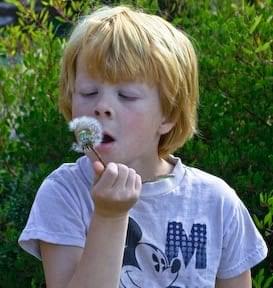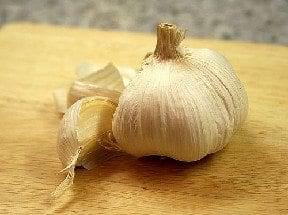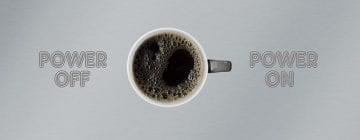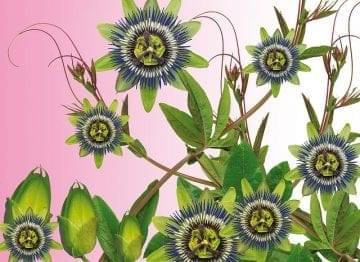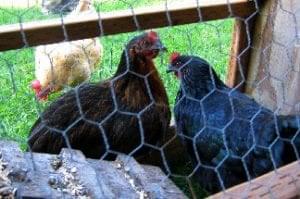Sufferers of either allergies or colds will tell you that sinus infections (sinusitis) make even the simplest tasks miserable. The symptoms are numerous: sinus pain, watery eyes, runny nose, coughs caused by post-nasal drip, fatigue, headaches, blurred vision, bad breath, jaw pain and swollen eye lids. In short – utter misery. It is not always possible to run to the doctor for antibiotics. Herbal medicine is a practical option for most households.
Herbal Allies for Prevention
Cat’s Claw (also know as Una de Gato) is an herb that is woefully underused in North America. A native of Peru, this plant stabilizes white blood cell count between 4,000-9,000 range. Sufferers of sinusitis can take this herb daily to deflect infections without the challenge of taxing their immune system.
Echinaea has a variety of forms and species to take advantage of for virus defense. It is wise to combine different species such as Echinacea purpurea and Echinacea angustifolia since each offers a diversity of components that arm the body against viral attacks. The root has the the most medicinal value towards this purpose but the aerial parts including the flowers are excellent to add to teas or tinctures. Echinacea raises the white blood cell count in the body so it should not be taken before a blood test and doesn’t need to be taken more than a few weeks at a time.
Astragulus is a well known immune system herb. Ayurvedic medicine has relied on it for centuries. Either teas or tinctures work well for daily fortification in winter. The taste is palatable and blends well with other herbs.
Garlic is a powerful herb that can be taken in capsules, soups, stews, oils or any other form the patient finds convenient. The point is to get garlic in the body every day. It’s really that simple.
Reishi mushroom is not as popular as it should be. Mushrooms are growing in popularity due to new research on their effect on the body. Reishi mushroom actually tracks down viruses in the body and consumes them. Companies sell reishi in a large variety of forms – any will do.
Tea Tree Oil is a wonderful treatment for sinus infections caused by reactions to molds and mildew. Adding a few drops of tea tree essential oil to the mop bucket just before washing the floors or misting the air with an atomizer that contains tea tree essential oil goes a long way towards keeping fungus at bay.
 List of Herbal Allies for Prevention
List of Herbal Allies for Prevention
Nutrition for Prevention
Although this sounds strange, one of the best things prevent a sinus infection is to keep your teeth clean and infection free. This can be achieved through regular dental exams, brushing, flossing and diet regulation. Bacteria loves sugars of all kinds. The mouth is convenient place for bacteria to enter. Astringent fruits like pomegranates, apples and pears are available in autumn and help with dental care.
A balanced diet with special emphasis on raw fruits and vegetables does wonders for preventing infections. Processed foods are convenient but are lower in nutrition. Think of how inconvenient a sinus infection is when you head for the kitchen. Fall and spring fasts are excellent to add to a sinusitis prevention routine.
Allergies can trigger nasty sinus infections. It may not be possible to avoid pollen but keeping the rest of your environment from taxing an already strained immune system will keep the body better equipped to handle the allergic reactions as they occur. Keep the home and body clean. This includes staying away from smoking, drugs and stale environments.
Herbal Allies for Treatment
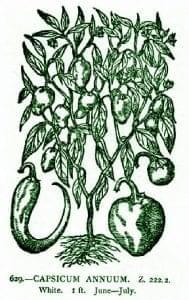
Cayenne and horseradish are not a surprising herb for draining the sinuses. Any one who has had a mouthful of salsa or wasabi knows they should be reaching for a tissue immediately.
Elderberry is particularly suited for breaking up mucus. It is excellent for children and patients with a dedicated sweet tooth because of its berry taste. Elderberry may be safely taken as a daily herb to treat and prevent virus infections.
Yarrow and ginger are both well suited for sinus infections. Yarrow dries the sinuses and serves as an anti-inflammatory while ginger eases pain and clears the head. They can be taken in any form – tincture, glycerite or heated with honey as a moxie. Yarrow steams help the sufferer breath again.
Essential oils (eo) like eucalyptus and peppermint can be excellent allies during sinus attacks. Both of these eos contain menthol which cools the nose and throat and acts as a temporary anesthetic. A dab of peppermint or eucalyptus eo above the lip and below the nostrils opens the sinuses. Adding either of these eos to a cotton swab and using them in conjunction with a vaporizer during sleep will let you wake up refreshed. Or, a salve prepared with either of these essential oils and applied to the cheeks, forehead just above the nose, and just below the nostrils can help ease sinus pressure as well.
List of Herbal Allies for Treatment
- Apple Cider Vinegar
- Cayenne
- Horseradish
- Elderberry
- Yarrow
- Ginger
- Peppermint essential oil
- Eucalyptus essential oil
Nutrition for Treatment
Extra Vitamin C and flavonoids such as quercetin are highly recommended during a sinus infection. Bee pollen (for those who do not have allergic reactions to oral doses of bee pollen) provides the body with large amounts of readily available vitamins and trace minerals. Other vitamins to keep in the diet are Vitamin B2 (riboflavin) and Vitamin A. These directly assist the mucous membranes. Dark green vegetables, liver, and cheese contain large amounts of both of these vitamins.
Take fatty forms of dairy, sugar and oily foods like meat out of your diet while suffering from sinusitis especially if you suspect a food allergy may be responsible for your reaction. A raw foods diet with fruits, vegetables and nuts will give allow the body to eliminate toxins so the sinuses can recover.
Acupressure is effective way to clear the sinuses that can be done at home or work. Using the first two fingers of both hands, firmly press in the middle of and just above the eyebrows for a few minutes. This relieves sinus pain.
Relief for sinus pain may also be found by simply placing a washcloth dampened by hot water over the face for as long as 10 minutes. Many people also swear by Neti pots for treating their sinusitis.
Herbal Allies for Recovery
Gargling a dropper full of cayenne tincture in a 1/2 cup of water to rid the mouth of residual infections is strongly advised by medical herbalists. Cayenne has strong anti-microbial properties which also ease pain during the recovery process. Try this treatment after brushing your teeth twice a day for a few weeks after an attack.
Go back to the list of preventative herbs and rework them into your diet. Recovery is not the time for Echinacea necessarily, but the other herbs will help you stay on your feet. Dandelion is an excellent herb to introduce for a few days during the recovery period. Try tossing a handful of sea salt and 1/4 cup of dandelion vinegar in your bathwater. It is surprisingly refreshing.
Dandelion reaches for after major infection has punished the body. This herb strengthen the liver which has been working hard to keep the body clean. Dandelion may be taken as tinctures, capsules, glycerites or in vinegar form. Dandelion leaf is especially convenient to add to salads since it grows almost everywhere.
 List of Herbal Allies for Recovery
List of Herbal Allies for Recovery
Nutrition for Recovery
Keep your diet free from processed foods after a sinus attack to allow your system to re-stabilize. Heavy salts, sugars and preservatives are difficult to digest and refocus the energy needed to recover from the infection. Smoothies and soups would be an excellent addition to any diet after a sinus infection.
Give the home and car a thorough cleaning to prevent any lingering viruses, bacteria or fungi from reinfecting your body. Try adding the Four Thieves Vinegar to a spray bottle for use while cleaning.
Be sure to visit the dentist after a sinus infection to make sure that it did not come from an undetected gum infection.

